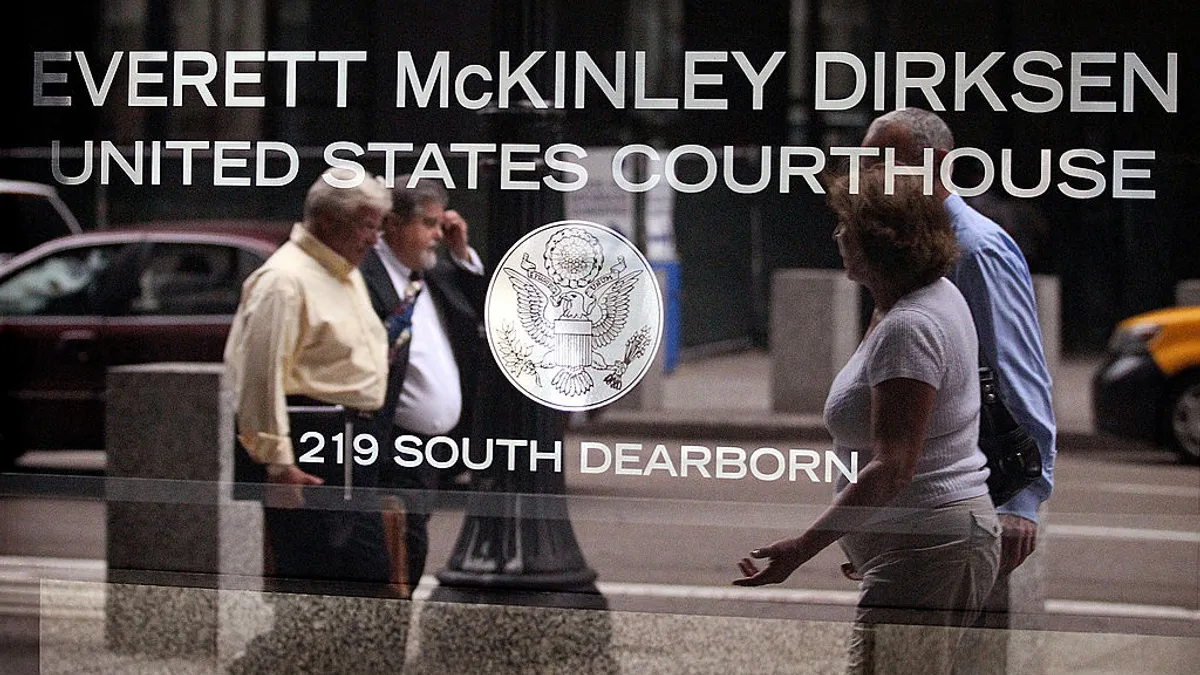Pay transparency laws are raising tough issues for in-house counsel as they try to balance compliance with the Biden administration’s stepped-up focus on antitrust concerns in the labor market.
“The antitrust law hasn’t changed, but there’s obviously wage transparency laws that are changing,” says Joe Miller, co-chair of the antitrust practice at Mintz and a former trial attorney in the competition bureau at the Federal Trade Commission, among other roles. “I think the difference between now and five years ago is there’s a lot more focus on federal enforcement and things that employers may do that are seen as anti-competitive that may harm employees. That comes with increased risk.”
As part of the antitrust push President Biden launched his first year in office, the Department of Justice, the Federal Trade Commission and the Department of Labor have stepped up their effort against employers sharing wage and benefit information with one another.
At the same time, states have been passing a spate of transparency laws requiring employers to disclose pay ranges on job postings. To date, some 18 states and other jurisdictions have adopted some form of pay transparency law.
However well intentioned the goal of pay transparency, the laws may have the unintended effect of undermining labor market competitiveness, Zoe Cullen, an assistant professor at Harvard Business School, told Legal Dive.
For example, right-to-talk laws, which allow employees under the National Labor Relations Act to discuss among themselves their pay and benefits, and even compile data on pay in spreadsheets, might be enabling companies to bargain more aggressively, Cullen said.
“Firms may look at those spreadsheets and coordinate around them, and this may be done tacitly or proactively,” she said.
Based on research Cullen and others have conducted, wages tend to fall in states after employees gain state protection to share salary information.
“I can’t rule out that firms with better access to these spreadsheets are in fact coordinating around newly available salary information,” she said.
How much antitrust enforcers could use data like that to show collusion, though, isn’t clear.
A win for the prosecution on a wage antitrust case isn’t easy, particularly in the absence of evidence showing an explicit connection between wage sharing and collusion, said J. Larry Stine, a senior principal at Wimberly Lawson and a former regional counsel in the Labor Department’s solicitor’s office.
“Basically the plaintiff in those cases needs to find someone who was present to a discussion about setting wages, or have other evidence that it’s going on,” Stine said. “If you don't have that type of information, you're typically not going to get past a motion to dismiss.”
Managing antitrust risk
With these pay transparency laws popping up state-by-state — among the most recent, Hawaii has a law taking effect in January and Illinois has one taking effect in 2025 — in-house legal departments have their hands full managing antitrust risk.
The laws have created enough complexity that many in-house counsel have outsourced the matter to outside counsel, and HR leaders are being instructed to tread carefully when talking about wage and salary information among peers, even casually.
“Most HR conferences now start off with an antitrust statement that includes a review of best practices around sharing any sort of competitive wage information,” Stine said.
Adhering to best practices when talking about wages is especially important as the federal government steps up its efforts to prosecute wage-fixing as a crime, said Miller.
Even if employers don’t agree on setting the actual wage, the mere agreement to exchange information can lead to liability if it results in lower wages, Miller said.
A case brought against the Arizona Hospital Association over the setting of wages for traveling nurses is a case in point.
“They didn't agree what they were going to pay traveling nurses, but they agreed to exchange information and that was enough to allege a violation,” said Miller. “Just the exchange of the information was enough to get them sued and they settled that suit. But that was enough for the Justice Department to allege it.”
For in-house counsel, Miller said, if your company operates in a market where the exchange of information could have a suppressing effect on wages, then you need to pay close attention to what's happening.























